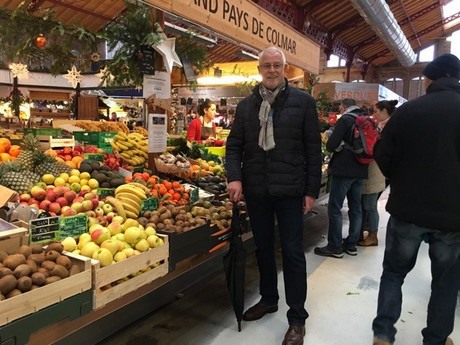There is an ever-growing demand for organic products. The reason - these are less damaging to the environment. Despite this, air freight transportation is gaining popularity in the fresh fruit and vegetable sector.
“You can often find pineapples, mangoes, and strawberries that are flown in, in the supermarkets. Many years ago, air transport was even a positive marketing tool used by retailers, especially when it came to pineapples", says Jan Prinsen. He is from the Belgian Fresh Food Institute. "We did not know any better. Back then, we were not as involved with environmental issues as we are now."
"This changed in the nineties. More people started paying attention to the environment. Retailers were addressed about this. I used to be the Director of Fresh Produce at a Belgian retailer. As I recall we were then able to find alternate solutions for all our fruit products. All except passionfruit."

‘’Where is the logic?’’
“I do not know precisely what the current situation is with retailers. It does, however, seem that there is less focus on the environment. We are no longer allowed into the city center with a 'polluting' car. Yet, some kinds of fruit and vegetables are still brought in by plane. How is that logical?”, Jan wants to know.
“This is especially true for organic products. I do not know how many organic products are transported by air freight. However, seeing how successful the organic trend is, there are undoubtedly organic products on the shelves that are brought in by air. The product, therefore, loses value. It also affects the credibility of the quality label."
Seasons
Fruit and vegetables are available almost year-round at retailers. This means few consumers keep the seasons in mind. "Fruit and vegetable seasons should be better respected. Especially in the organic sector."
"It is not only the retailer's responsibility to think about everything that has a negative impact on the environment. Consumers should also do so. Attention to our environment is becoming a 'top item' for the future. Youngsters will force us, as adults, to take this into account when we buy products, especially fruit and vegetables", continues Prinsen.
“One solution would be that when fresh fruit and vegetables are flown in, this should clearly be stated on the packaging. In this way, the customer is aware of this. They can then decide for themselves whether they want to buy the product, or not."
"The means of transportation is even more important for organic products than conventional ones. This could negate a quality label's credibility. If I were still responsible for purchasing at a retailer, the buyers would be tasked to find a different way of doing things. There would have to be a clear reason for there being no alternative to air transportation."
"We must look at this issue in a far broader sense. We have to do so to heed not only our future but also to ensure the future of generations to come", Jan concludes.
For more information:
Jan Prinsen
Belgian Fresh Food Institute
belgian.fresh.food.institute@gmail.com
www.belgianfreshfoodinstitute.be
